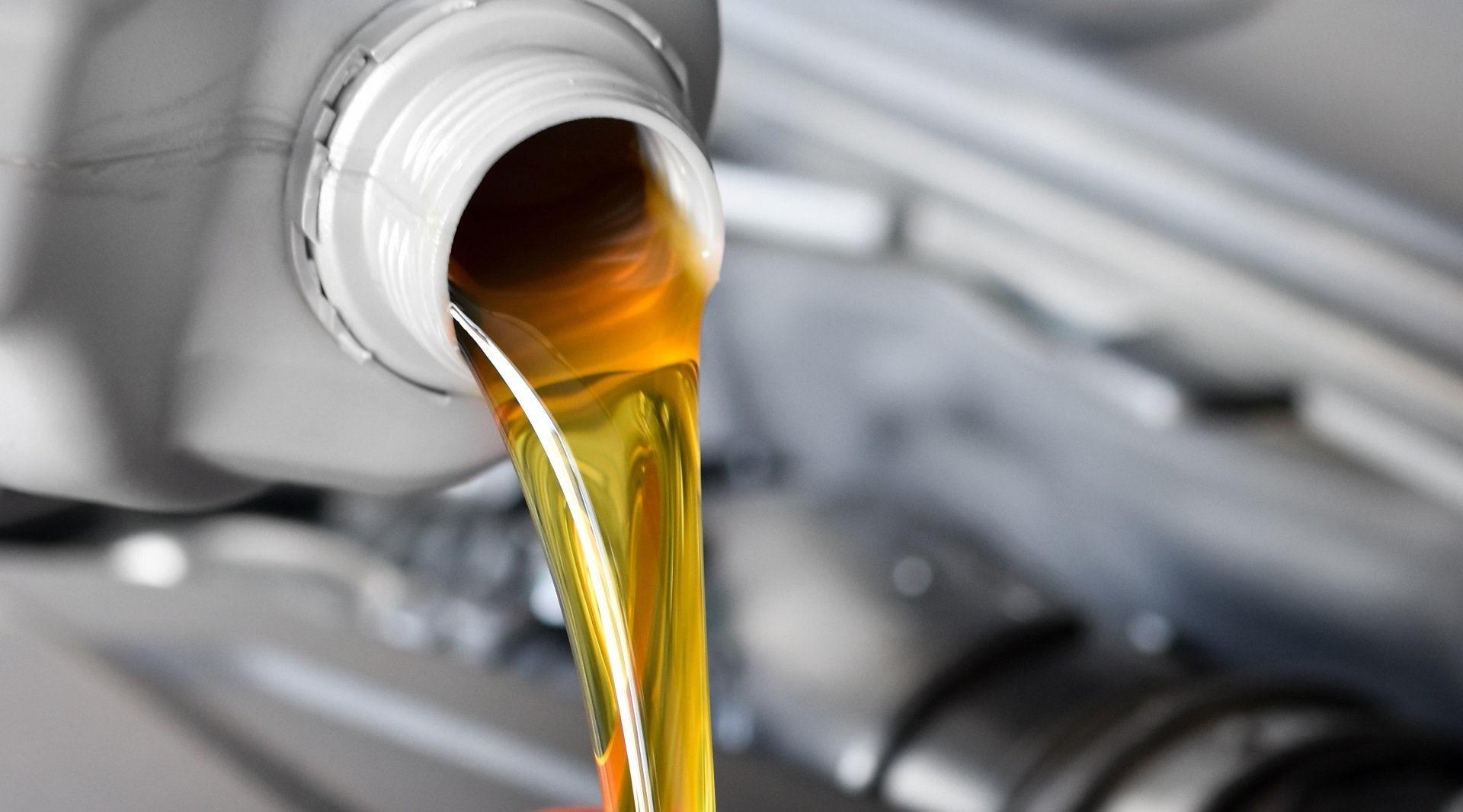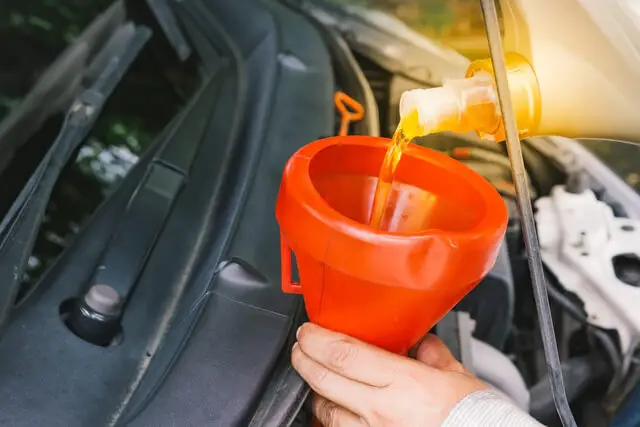While pouring car oil, you may notice sometimes it can spark due to lighting up your cigarette. One can assume whether the car oil is flammable or not.
To answer this critical question, we are here to guide you by elaborating on some properties of car oils in terms of flammability.
Is Car Oil Flammable?

Here is the fact you must know is car oil flammable or not.
Fact 1
Car oils can catch fire, but it is not a flammable product classified by OSHA because it comes with a flash point above 199.4 degrees Fahrenheit equals 93 degrees Celcius. The car engine oil flashpoint is 419 degrees. Fahrenheit equals 215 degrees Celcius.
Fact 2
The car oil is not technically flammable because flammable liquids can ignite when an ignition source is below 199.4 degrees Fahrenheit equals 93 degrees Celcius.
Fact 3
On the other hand, car oil needs a much higher temperature for combustion, so it is not a flammable liquid. It can burn if an ignition source is present or a flashpoint is present at approximately 300 to 400 degrees Fahrenheit, equal to 150 to 205 degrees Celcius.
Fact 4
The flashpoint is the temperature at which a compound releases enough fumes for burning when exposed to any ignition source or spark. The flashpoint of car oil is different and depends on the type, and it is approximately 400 degrees Fahrenheit.
Fact 5
The car oil is not flammable because it does not contain hydrocarbons, and most flammable liquids contain the short chains of hydrocarbons, as these short molecules can release vapours with ease, and it is because of vapour that permits them to be ignited at shallow temperatures.
Fact 6
The car oil is not flammable because the release of vapour is due to the weak intermolecular forces and needs less energy to split up two molecules at a distance and one from the drift away in the form of vapour. Therefore, a gallon of car oil contains trillions of molecules, which occur many times in one second and can form plenty of vapour.
Fact 7
Moreover, car oil is a heavy liquid and contains much longer molecules because it is a mixture of hydrocarbons and contains as few as 18 or a maximum of up to 34 hydrocarbon atoms in each molecule compared to the flammable liquids.
Fact 8
It is a fact that car oil requires much more energy to break two molecules and keep them apart at an adequate distance. It has more vital intermolecular forces and cannot produce vapours at or around room temperature.
Fact 9
It is also because car oils need a high-temperature level for combustion, which weakens the intermolecular forces enough for vapour production. Therefore, it cannot catch fire, but it requires a high level of the temperature range to do this, and there it is combustion of liquid compared to a flammable liquid.
Fact 10
If we look at the conventional car oils, which may be a crude oil derivative and mineral oil, you can use it as a friction beater and engine sludge cleaner and helps to neutralize the acid from the fuels. It plays a vital role in cooling the engine and sealing piston rings with heat transfer from the car’s moving parts.
Fact 11
The flashpoint of car oil lies in the value of 302 to 392 degrees Fahrenheit and the boiling point of 572 degrees Fahrenheit; this fact reveals that the car oil qualifies as a flammable liquid. By looking at the high flash point, it will need a very high temperature to burn. Still, it uses for combustion lightly but with a fragile flame.
Fact 12
If the car oil gets heated up to the flashpoint, it can catch fire easily. This may happen when your vehicle’s engine gets low oil levels or some type of leak.
Fact 13
Moreover, if you store the car oil very close to the heat source and it is exposed to the heat or flame for a longer time, access the flashpoint to the minimum level of 350 Fahrenheit, then the oil can catch fire.
Frequently Asked Questions
Can you burn car oil in a fire?
While the engine oil may not be flammable, it can easily catch fire. Most kinds of flames are much hotter than 400 degrees Fahrenheit, and if the car oil gets to have one of these temperature levels, it can heat the oil to the point of temperature range that can lead to ignition and result in the fire.
Will oil start a fire?
Fire due to grease occurs when the oil gets a higher temperature range and thus becomes too hot. While cooking with oil, it will first go to boiling temperature range, then lead to smoke, and afterward, it will catch fire. When you see that oil starts to get smoke, turn the temperature down. Most types of oil start to smoke at around 450 degrees Fahrenheit and can go to ignition at approximately 55 degrees Fahrenheit.
At what temperature range does the car oil burn?
At the initial stage, the regular car oil burns at 350 to 450 degrees F. While synthetic oils can continue to work at 500 degrees. Sometimes piston ring temperatures can go to over 500 degrees under higher loads.
What causes oil to explode?
Crude oil is a form of hydrocarbon used as a fuel. Air comes with oxygen if you put them together with the spark or ignition source like an exposed flame. The hydrogen atoms in the car oil combine with the oxygen atoms in the air and rapidly release a large amount of heat, depending on the conditions. The result will be an explosion or fire.
Conclusion
So based on the above facts, the flammable are these liquids that can catch fire at the temperature of 199.4 degrees Fahrenheit or theses than this temperature range.
Therefore, no car oil is flammable; however, this does not mean that using the car oil is entirely free of risk and a cigarette or a stray spark cannot make it catch fire because it is not as tough to get to burn either. So be on the safe side.
The storage of the car oil is on the safe side, intending to decrease the risk of danger to you and around you. If you follow the tips and keep precautions working with these oils is fire-free.

